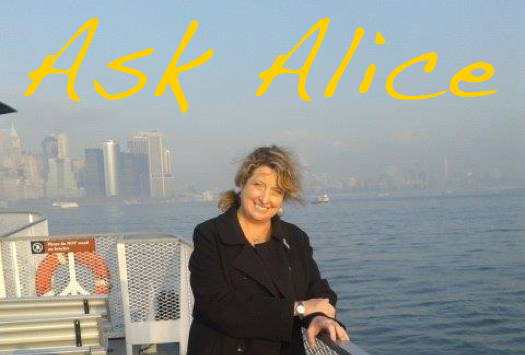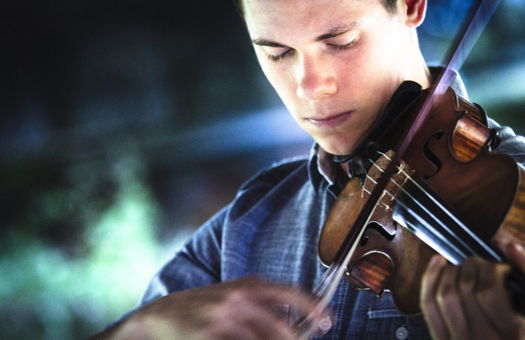|
 On Callum Smart's Glazunov Violin Concerto,
On Callum Smart's Glazunov Violin Concerto,
with classical music agony aunt ALICE McVEIGH

Every now and then — maybe once a decade — you hear a teenager with that mysterious gift — the real X-factor — and you feel that little thrill up your spine, and you realise, suddenly, shockingly, that you've just accompanied a musician who's going to be famous.
This happened to me last Saturday, at the Langley School for Boys Performing Arts Centre, while I was leading the Bromley Symphony cellos. And the violin soloist I'm talking about is called Callum Smart. A lot of British string players will recall that — then aged just thirteen — he won the strings final at BBC Young Musician of the Year 2010 ... On the basis of what we heard last Saturday, had he been content to wait until he was all of fifteen, no one could have beaten him for the overall title.

Currently nineteen and studying at my old alma mater, Jacobs School of Music at Indiana University, he has already been loaned a glorious if temperamental Stradivarius. He's working on not only the obvious 'core' repertoire (Brahms, Beethoven etc) but also the Britten concerto, which is still so rarely programmed, and he's already performed the Beethoven Triple Concerto with the Philharmonia Orchestra in London.
So, what so shocked me — in a good way — about his performance? It was 'only' the Glazunov concerto (he had offered the orchestra loads of works, but the Glazunov fitted the requirements for this particular concert). It's a fresh-faced, delicate twenty minutes'-worth, and, although undoubtedly one of G's most attractive works, not a masterpiece. So, what was so special about it?
Well, from the first note Callum Smart drew us in, orchestra as well as audience. Perhaps that was the shock, that someone still only, after all, a teenager could so effortlessly mesmerise us, to such an extent that we trod with unusual and velvety care. Or perhaps it was the daring with which he breathed the phrases, almost improvised yet with a strong sense of underlying harmonic and structural cogency. Perhaps it was the delicate variety of tone colours he conjured up — or the way the double-stops sounded almost like two violins, each equally empowered to vibrate (not an easy trick to pull off). But also, perhaps it was the skill with which he paced not only the cadenza that links the movements but the last movement, itself conceived as a near-continuous acceleration.
It definitely wasn't 'just' the Strad, though the tone had that rich depth that only an old Italian can release (and it feels like a release). It was the persuasiveness of his vision of the work, and the eagerness of his still-youthful vitality, the combination of mature conception with the confidence of someone already approaching his years of individual and generous greatness.
Every musician knows the feeling, that special feeling, of a captivated audience. Smart could have played several hours longer, could have segued into the Tchaikovsky — there was a touch of the Tchaikovsky, feelingly tempered, in the slower sections — and not one of the four-hundred-and-fifty in the audience would have budged. We in the orchestra were almost afraid to play: every sound we made had to be feathered into his, a daunting sensation given the sound he offered. And when he'd finished there was a moment of deep breath before the eruption. Believe me, I wasn't alone in recognising the sheer quality of Smart's playing. And afterwards there was a special feel in the orchestra room. Every player there, I believe, realised that they'd been allowed a glimpse of something rare and unutterably, even shockingly, beautiful.
He'll be at my old school, lighting up the recital hall, lighting up Bloomington, for another few years. But then: watch his smoke.
Copyright © 22 May 2015
Alice McVeigh, Kent UK

|

